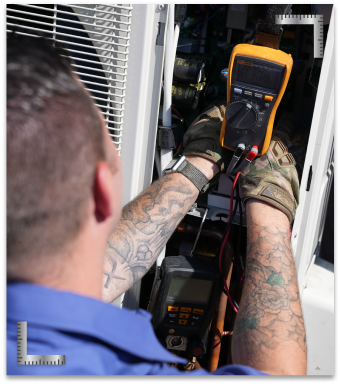Signs It’s Time for an AC Tune-Up
As a homeowner, ensuring your air conditioner is in top working condition is crucial for maintaining comfort, especially during the hot summer months. Regular AC tune-ups are essential for optimal performance and longevity. But how do you know when it’s time for a tune-up? At Mike’s Mechanical, we’ve compiled a list of signs that indicate your AC unit might need some professional attention.
What Homeowners Should Look For
1. Weak Airflow
If you notice weak or reduced airflow coming from your vents, it could be a sign that your AC unit needs a tune-up. This issue can result from a clogged filter, blocked ducts, or failing components. Addressing this early can prevent more significant problems down the line.
2. Unusual Noises
Unusual sounds like grinding, squealing, or banging from your air conditioner are never a good sign. These noises can indicate loose or worn-out parts, which can lead to more severe damage if not addressed promptly.
3. High Energy Bills
A sudden spike in your energy bills without a corresponding increase in usage can signal that your AC unit is not running efficiently. Regular tune-ups can help maintain your system’s efficiency, saving you money on energy costs.
4. Frequent Cycling
If your air conditioner cycles on and off more frequently than usual, it could be struggling to maintain the set temperature. This could be due to various issues, including thermostat problems, refrigerant leaks, or dirty coils.
5. Warm Air
When your AC is blowing warm air instead of cool, it’s a clear indication that something is wrong. This could be due to a refrigerant leak, compressor issue, or a problem with the thermostat.
6. Bad Odors
Unpleasant smells coming from your air conditioner can indicate mold or mildew growth within the unit or ducts. This not only affects your indoor air quality but can also pose health risks.
7. Moisture and Leaks
If you notice moisture or leaks around your AC unit, it could indicate a refrigerant leak or a blocked drain tube. Both issues require immediate attention to prevent further damage and ensure the system operates safely.

